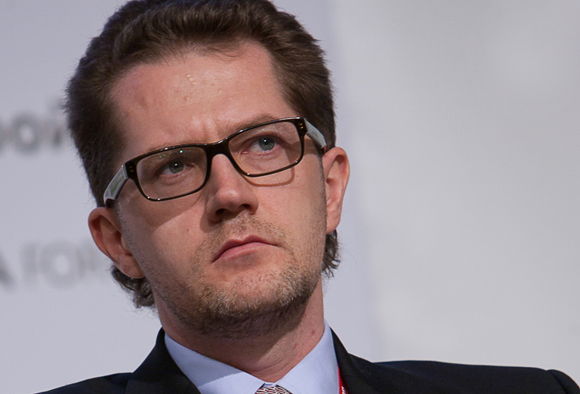Service functions
-
Download center
-
Add to My Report
-
My Report (0)
-
Print this Page
-
Download in PDF
-
Share
-
Feedback
-
Interactive analysis
-
Browsing history
-
Offline version
-
Company in soc.networks
-
Compared to 2011
-
Popular pages
-
Company on the map
-
Compact view
| Enter e-mail recipient * | Your e-mail * | Comment : | |
| * required fields | |||
Opening address of K.G. Androsov, Chairman of the Board of Directors
of JSC “RZD”

Dear Sirs,
In 2012, at the initiative of the Board of Directors, JSC “RZD” made an important decision that would largely predetermine the ways of its development, its future place not only in the Russian transport and logistics market, but also in the global one. It was decided to work out RZD Holding Company’s development strategy — a system of long-term strategic goals and priorities, as well as the ways to achieve them.
This decision was driven by the necessity to respond to processes that dynamically change the external environment. First of all, they include:
evolution of the standpoint of the government — the only shareholder of the Company and, at the same time, the regulator that sets the rules for the development and operation of the rail transport — on the target state of the sector and, particularly, JSC “RZD” expressed through the following decisions:
- to approve the acquisition of GEFCO, one of the global logistic leaders, by JSC “RZD”. This is the shareholder’s decision to expand the scope of the company’s businesses and, consequently, to transform it from a railway carrier into a global transport and logistic company;
- to grant JSC “RZD” the right to change its tariffs for freight transportation by rail within certain price limits (a tariff corridor). This is the regulator’s decisionto change the pricing principles with respect to the base transportation service, the key regulation method for railway transportation. The changes aim at creation of the conditions enabling to correlate financial and economic interests of the infrastructure owner —JSC “RZD” as a carrier, consigners and owners of rolling stock (operators). This resulted in the company’s ability to attract additional freight volumes due to immediate correlation of prices with changes in the market situation.
The above processes also include changes in the macroeconomic environment and intensification of interspecific competition in the transport and logistic services market.
The time of consigners has come. Various modes of transport, owners and operators of rolling stock, transport and logistics companies are experiencing tough competition for customers and the freight base.
Competition has accelerated the process of globalization and integration of the transport market, with the most successful railway companies becoming global providers of comprehensive transport and logistics services and increasingly offering “door-to-door” transportation using all available means of transport, which meet the respective client needs to the maximum.
The government regulation that currently exists in respect of railway transportation considerably limits the competitive advantages of JSC “RZD” in comparison with other means of transportation. Acting as a natural monopoly and having the status of a “public carrier”, the company has to offer all customers the same freight transportation services in terms of their form, quality and price. However, individual requests of the customers are quite specific — transportation for the minimum cost, transportation in the shortest possible time, freight delivery at the exact time, the ability to guarantee freight transportation despite of infrastructure shortfalls. Meeting these requirements implies different efforts and, therefore, various costs on the part of the company. But the existing regulating system restricts the customer-oriented approach in the industry.
The company should change the existing business model of a “network-wide railway carrier” and transit to the model of a “transport and logistics operator”. However, integration of transport and logistic activities with ownership and managements of the railway infrastructure should remain the natural competitive advantage of the company.
Working out and effective implementation of the company’s long-term development strategy determining its strategic goals and priorities, as well as practical plans for the achievement of such goals are the best way to respond to external challenges and the guarantee of success in future.
The last year was the 175th anniversary of the establishment of the Russian railways. This decision made ages ago cannot be overestimated. The history of our state, lives of many citizens of our country have been inseparably associated with the history of establishment and development of the Russian railways for about two centuries.
I am confident that “Russian Railways” has every reason to be optimistic about the future.

 Address of the President
Address of the President
 175th Anniversary of Russian Railways
175th Anniversary of Russian Railways
 Analysis
Analysis
 Save Key Indicators to XLS
Save Key Indicators to XLS
 Transport Development Strategy
Transport Development Strategy
 Investment Activity
Investment Activity
 Download Chapter Financial and Economic Performance
Download Chapter Financial and Economic Performance
 Rating
Rating
 Loan Portfolio
Loan Portfolio
 Management System
Management System
 Governing Structure Of JSC Russian Railways
Governing Structure Of JSC Russian Railways
 Personnel management
Personnel management
 Housing policy
Housing policy